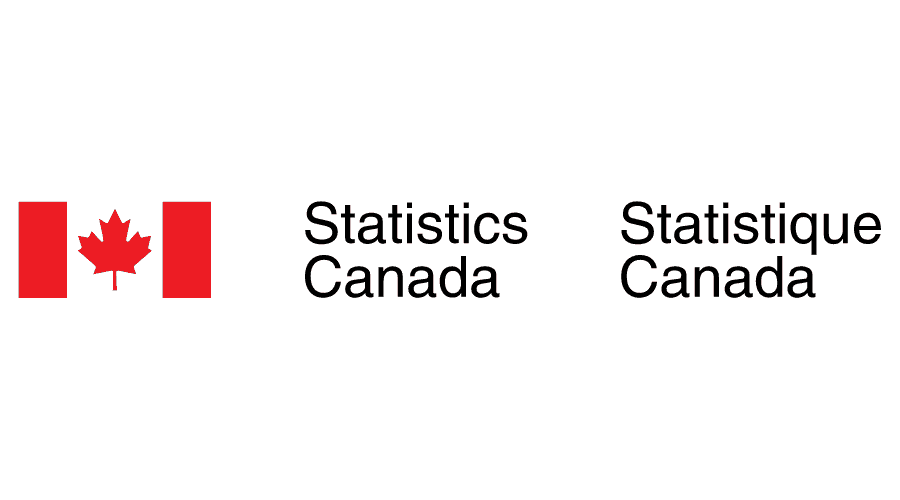Dreaming of a life outside of Canada? Looking to fly the Canadian Coop? Here’s what you need to know before leaving Canada.
As I scan my social media feeds, all I see are posts from my fellow Canadians searching global maps for an escape route.
“Show me sunnier pastures without the high taxes!”,
“Where’s a place with affordable healthcare that doesn’t involve shoveling snow?”
“Just got Laid off, I need to leave Canada.“
and it goes on. And seriously, who can blame them?
While our great white north will always be home, it’s easy to feel the pull of adventure beyond its snow-covered borders.
From experiencing new cultures on the other side of the world to exploring new passions in lively cities south of the border, the lure of leaving is undoubtedly strong.
But before you take the Great Canadian Leap, hear me out.
Leaving Canada is not as simple as packing your bags and hopping on a plane. You need to consider many factors before leaving Canada, and you also need to go through the resources and support available to you.
To help you with your decision, I’m going to share some stories from Canadians who have moved abroad, as well as some expert insights from immigration consultants, financial advisors, and cultural coaches. So, stay tuned!
The Push Factors: What Motivates Canadians to Move Abroad

Suddenly, Canadians are looking beyond the vast landscapes of the Great White North. What’s behind this desire to spread wings?
First thing, it’s not a sudden desire. For many Canadians, the harsh winters, declining standard of living, and long months of cold have always encouraged them to seek warmth and sunshine.
Mike, residing in New Zealand, notes, “The weather was a big reason – I like to be outdoors and was tired of nine months of winter. But I also thought it was time for a serious change, and the adventure of starting fresh abroad really appealed to me.”
However, pushing past the cold, other common “push factors” include a desire for adventure and cross-cultural experiences.
Canadians may feel drawn to explore diverse regions of the world and absorb new perspectives.
“After graduating university, I knew I didn’t want to settle for the 9-5 lifestyle quite yet,” shares Jen, a Canadian expatriate now teaching English in South Korea. “I wanted to travel, challenge myself, and improve my language skills. Two years later, and I’m still here, loving the adventure of each new day.”
For others, it’s more of an economic decision. The rising costs of living and high housing prices compared to average wages mean Canadians may move abroad in search of better affordability and career opportunities.
Sarah, who moved to Berlin for work reasons, notes, “As someone in the arts, the lower cost of living in Berlin has been fantastic. I feel like I can actually focus on my creative career without stressing as much about financial pressures.”
And, what are experts saying?
According to a study by Statistics Canada, the main factors motivating Canadians to move abroad are career opportunities, quality of life, and personal reasons. And many experts agree the trend of Canadians living and working globally will likely continue as newcomers follow in the adventurous footsteps of past pioneers.

According to immigration analyst Patricia Burke, globalization has made emigration from Canada much more common and accessible. “Many well-educated young Canadians see overseas experience as crucial to their future career success,” she notes.
Economist Jeremy Chen also cites rising housing costs as a push factor. “People are priced out of the cities they grew up in and see more affordable housing options abroad,” he explains.
Myra Chan from the Conference Board of Canada echoes these sentiments: “Canada has really developed a culture of global experience over the past decade. Young Canadians especially want passport stamps and international skills to complement their educations these days.” With remote work also taking off, some experts argue more Canadians may decide to nomad abroad long-term.
Essential Considerations Before Leaving Canada
Moving abroad is a big decision that requires careful preparation and planning. There are many practical considerations that you need to take into account before leaving Canada. In this section, I’m going to discuss some of the steps and tips that can help you prepare for the move.
A: Legalities and Paperwork: Visas, Permits, and Residency Requirements
One of the first things you need to do before leaving Canada is to check the visa and immigration requirements of your destination country. Depending on where you plan to move, certain visas, permits, or residency paperwork may be required upfront or applied for upon arrival. “Getting all my documents together for my work visa was stressful,” recalls Tim, who lives in London. “But it was worth it to do everything upfront rather than risk delays.”
So, it is better to start the process early, as application processing times can vary significantly between programs and locations. You can find information on the visa and immigration requirements of different countries on the Travel Advice and Advisories page of the Government of Canada website.
B: Currency Conversion Confusion
Moving abroad will make you realize that your Canadian dollars won’t go as far as they did before. Depending on the exchange rate, you may find yourself paying more or less for the same goods and services in your destination country. To avoid confusion and overspending, you should:
- Check the exchange rate regularly: You can use online tools or apps, such as XE or OANDA, to check the current exchange rate between the Canadian dollar and the local currency. You can also use these tools to convert prices and compare costs.
- Use a currency converter card: You can get a currency converter card, such as Revolut or Wise, that allows you to spend in multiple currencies without paying fees or commissions. You can also use these cards to withdraw cash from ATMs at the best possible rate. I personally use Wise as it’s a simple way to create a bank account in any currency of your host country.
Budget wisely: It is better to set a realistic budget for your living expenses abroad, taking into account the exchange rate and the cost of living. You should also track your spending and adjust your Budget accordingly.
C: Economics 101: Understanding Tax Implications and Financial Adjustments
Another thing you’ll need to consider when you move abroad is how your tax situation and financial obligations will change. Depending on your residency status, income sources, and tax treaties, you may have to pay taxes in both Canada and your destination country. To avoid double taxation and penalties, you should:
- Determine your tax residency status: You should consult the to determine whether you are still considered a resident or a non-resident of Canada for tax purposes. It will affect your tax obligations and benefits in Canada and abroad.
- File your tax returns: You should file your tax returns in both Canada and your destination country, reporting your worldwide income and claiming any deductions and credits. You should also be aware of the tax treaties and the foreign tax credits that may apply to you to avoid double taxation.
- Manage your financial accounts: You should inform your bank, credit card company, and other financial institutions of your change of address and contact information. You should also review your financial accounts, such as savings, investments, pensions, and insurance, and make any necessary adjustments or transfers.
D: Tips for keeping your finances stable even when miles away from the Bank of Canada
When you move abroad, you’ll want to make sure your finances remain stable and secure, even when you’re far from the Bank of Canada. Moving to a foreign country can expose you to various financial risks, such as currency fluctuations, inflation, or political instability. To protect your finances and grow your wealth, you should:
- Diversify your portfolio: You should diversify your portfolio by investing in different asset classes, markets, and currencies. This can help you reduce your exposure to any single risk factor and increase your returns.
- Save for emergencies: You should save for emergencies by setting aside a portion of your income in a liquid and accessible account. This can help you cover any unexpected expenses or losses that may arise while living abroad.
- Plan for the future: You should plan for the future by setting financial goals and strategies for your retirement, education, or other major life events. You should also review your estate plan and update your will, power of attorney, and beneficiary designations.
House Hunting 2.0
One of the first decisions you’ll have to make when you move abroad is whether to rent or buy a property. Renting can offer more flexibility and affordability, while buying can offer more stability and equity. To find the best option for you, you should:
- Research the market: You should research the market conditions, prices, and trends in your destination country and city. You can use online platforms like Numbeo or Expatistan to compare the cost and quality of living in different locations. You can also use local websites, newspapers, or magazines to browse available properties and get a sense of the market.
- Hire a professional: You should hire a professional, such as a real estate agent, a lawyer, or an accountant, to help you with the legal, financial, and contractual aspects of renting or buying a property. You should also check their credentials, references, and fees before hiring them.
- Inspect the property: You should inspect the property thoroughly before signing any agreement or making any payment. You should check the condition, size, amenities, and safety of the property and ask for any repairs or improvements. You should also take pictures and keep records of everything.
Locals vs. Expat Residences: Which is the Better Choice?
Moving abroad will also require you to decide whether to live with locals or expats. Living with locals can offer more immersion and integration, while living with expats can offer more comfort and support. To find the best balance for you, you should:
- Consider your preferences: When choosing your living arrangement, you should take into account your preferences and personality. Do you prefer to live in a familiar or a different environment? Do you enjoy learning new languages and cultures or sticking to your own? Do you value privacy or sociability?
- Explore your options: Learn what accommodations are available in your destination city and country. You can use online platforms, such as Airbnb or HomeExchange, to find short-term or long-term rentals with locals or expats. You can also use social media, forums, or apps, such as Meetup or Internations, to connect with other expats and join or create communities and events.
- Be flexible and open-minded: You should be flexible and open-minded when living with locals or expats. You should respect and appreciate the differences and similarities that you may encounter and learn from them. You should also be willing to adapt and compromise when necessary and communicate clearly and politely.
Understanding Employment and Education Abroad
The employment landscape varies greatly depending on your destination.
Research in-demand industries, qualifications locals seek, and application norms like CVs versus resumes. Consider language ability and any certification needs.
“I underestimated how important French would be for landing work in Montreal,” says Kyle.
Besides, Networking is key to hearing about hidden opportunities. Be open to new roles outside your core experience, too. If you’re persistent, you’ll find what you’re looking for. Tempwork can also ease into the local job scene.
Educational Pursuits: Studying Abroad and Academic Considerations
Post-secondary can be a meaningful way to transition abroad long-term. Look at programs offered in English if language is a barrier.
Costs vary significantly, so explore options like scholarships. “I chose an affordable Master’s in Berlin, which led to new friends and career connections,” notes Rachel.
Part-time courses also allow working alongside studying. Ensure credits are transferred should you return to Canada. Exchanging semesters abroad through your home university enriches global experiences.
Expert Advice: Tips for Job Hunting and Advancing Career Oversea
According to recruitment agent Sarah Jenkins, emphasize transferable skills over direct job titles on applications. “Hiring managers appreciate a proven work ethic more than identical experience,” she says.
Career counselor Mike Wilson recommends developing local references who understand the job scene. “Have informational meetings and join industry groups to build your network,” he advises.
Both stress continuously improving language skills and cultural knowledge to strengthen career mobility long-term in global markets. Maintaining an open and ambitious mindset sets you up for opportunities wherever you land.
Maintaining Canadian Connections
Living abroad does not mean losing touch with your Canadian roots. In fact, staying connected to your family, friends, and communities in Canada can help you cope with the challenges of expatriation and enrich your experience abroad. Moreover, you can leverage the resources and support offered by various Canadian networks abroad, such as consular services, associations, and alumni groups. These networks can provide you with valuable information, assistance, and opportunities to enhance your expatriate life.
Here are some examples of Canadian networks abroad that you can access:
- Consular services: You can register with the Registration of Canadians Abroad service, which is a free service provided by Foreign Affairs, Trade, and Development Canada that keeps you connected to Canada in case of an emergency abroad or at home. You can also contact the nearest Canadian embassy or consulate for any consular services, such as passport, citizenship, or legal issues.
- Associations: You can join or create a Canadian association in your destination country, which is a group of Canadians who organize social, cultural, or professional activities and events. You can find a list of Canadian associations abroad on the Canadian Expat Network website or search for them on social media or online directories.
- Alumni groups: You can connect with alumni groups of your Canadian educational institution or organization in your destination country, which can help you network, mentor, or collaborate with fellow Canadians who share your academic or professional background. You can find a list of Canadian alumni groups abroad on the Canadian Alumni Abroad website or contact your institution or organization for more information.
Wrapping Up
Making the leap to live abroad takes careful planning and preparation. Do thorough research on your destination’s culture, job market, cost of living, visa requirements, and more before leaving Canada. Consider short trial periods like study abroad programs or working holiday visas to test if international living is right for you. Most importantly, approach your Great Canadian Leap with diligence, positivity, and an eagerness to learn—your new home overseas may just exceed all expectations!


Leave a Reply